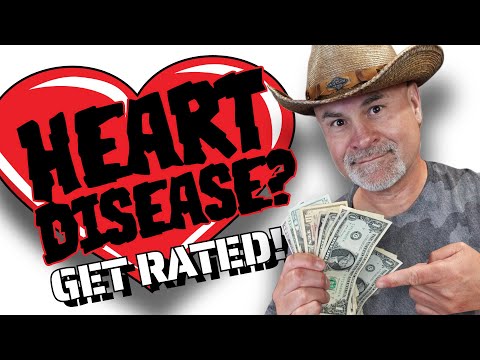From Diagnosis to Compensation: Navigating VA Disability Ratings for Heart Disease
3 min read
Introduction to VA Disability Ratings for Heart Disease
Heart disease is a common condition that affects millions of people around the world. It can range from mild conditions such as high blood pressure and coronary artery disease, to more severe conditions like heart failure and heart attacks. For veterans, heart disease can be caused by various factors such as exposure to toxins during deployment, physical injuries sustained in combat, or even stress-related disorders like post-traumatic stress disorder (PTSD).
For veterans who developed heart disease during their service or had a pre-existing condition worsened by their military duties, there are certain benefits available through the Department of Veterans Affairs (VA). These benefits include disability compensation and access to medical care at VA hospitals and clinics.
In this guide, we will discuss how the VA assesses heart disease in veterans and determines their disability ratings. We will also cover important information on how to file a claim for VA disability benefits for heart disease and what to expect during the process.
Understanding VA Disability Ratings
The VA uses a rating system to determine the level of disability for each service-connected condition. This system is based on a scale from 0% to 100%, with increments of 10%. A higher percentage indicates a more severe disability, which corresponds to increased financial compensation.
For heart disease, the VA considers various factors when assigning a disability rating, including symptoms, treatment options, and overall impact on daily functioning and quality of life. These factors are evaluated through medical evidence, including records from VA medical exams and private treatment providers.
Types of Heart Disease Covered by the VA
The VA considers a wide range of heart conditions when evaluating disability claims. This includes both congenital (present at birth) and acquired (developed later in life) heart diseases. Some common types of heart disease that are covered by the VA include:
Coronary artery disease
Hypertension (high blood pressure)
Cardiomyopathy
Arrhythmias (irregular heartbeat)
Heart failure
How the VA Calculates Disability Ratings for Heart Disease
To assign a disability rating for heart disease, the VA uses the criteria set forth in the VA Schedule for Rating Disabilities (VASRD). This schedule outlines specific diagnostic codes and descriptions for various heart conditions, along with corresponding disability ratings.
The VA will typically assign a higher disability rating for more severe heart conditions that require ongoing treatment or significantly impact daily functioning. For example, a veteran who experiences frequent angina attacks and requires regular medication may receive a higher disability rating than someone with controlled hypertension.
Filing a Claim for VA Disability Benefits
If you have been diagnosed with heart disease and believe it is connected to your military service, you may be eligible for compensation through the VA. To apply for disability benefits, you will need to fill out an application and provide supporting evidence, including medical records and any relevant service documents.
It’s important to note that the VA may request a medical exam as part of the claim process. This exam will help the VA evaluate your condition and determine an appropriate disability rating.
Navigating the VA disability system for heart disease can be complex, but it is important to understand your rights and benefits as a veteran. By understanding how the VA assigns disability ratings for heart disease and what factors they consider, you can better prepare for filing a successful claim. Remember to always seek assistance from a trusted healthcare provider or veterans’ organization if you need help with your claim. With proper documentation and support, you can receive the compensation and care you deserve for your service-connected heart condition. Overall, it is important to take care of your health and seek treatment for any symptoms related to heart disease, both for your well-being and for potential VA benefits. So make sure to stay informed and advocate for yourself as a veteran who has served our country with honor. Thank you for your service!
🔶 Helpful resources for disabled veterans
————————————————
🔵 If you are looking for a Nexus Letter for Mental Health and all other Medical Conditions, contact my med team at http://www.combatcraig.com
🤠 Sign up for Boot Camp http://www.combatcraig.com






